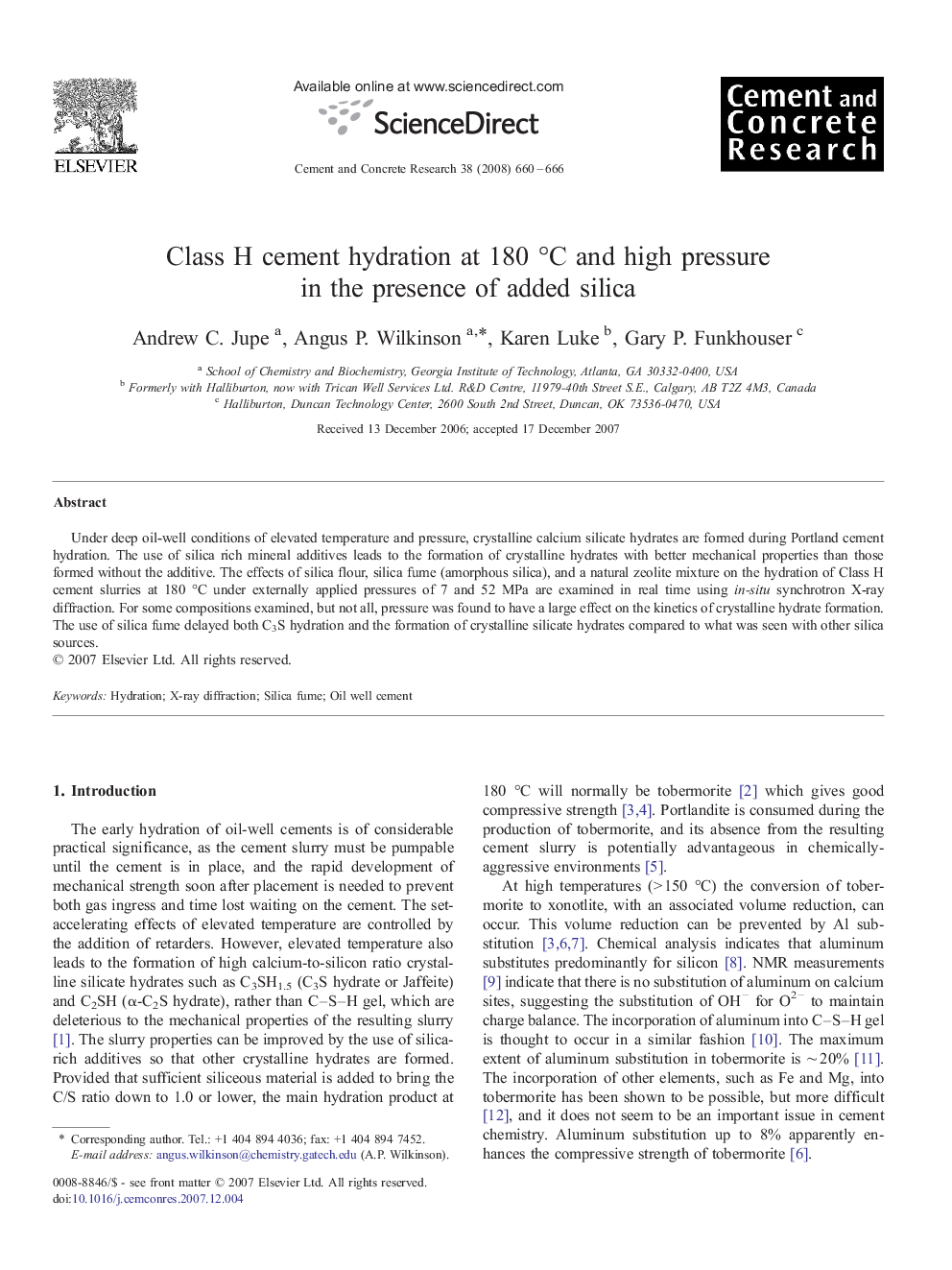| Article ID | Journal | Published Year | Pages | File Type |
|---|---|---|---|---|
| 1457490 | Cement and Concrete Research | 2008 | 7 Pages |
Under deep oil-well conditions of elevated temperature and pressure, crystalline calcium silicate hydrates are formed during Portland cement hydration. The use of silica rich mineral additives leads to the formation of crystalline hydrates with better mechanical properties than those formed without the additive. The effects of silica flour, silica fume (amorphous silica), and a natural zeolite mixture on the hydration of Class H cement slurries at 180 °C under externally applied pressures of 7 and 52 MPa are examined in real time using in-situ synchrotron X-ray diffraction. For some compositions examined, but not all, pressure was found to have a large effect on the kinetics of crystalline hydrate formation. The use of silica fume delayed both C3S hydration and the formation of crystalline silicate hydrates compared to what was seen with other silica sources.
